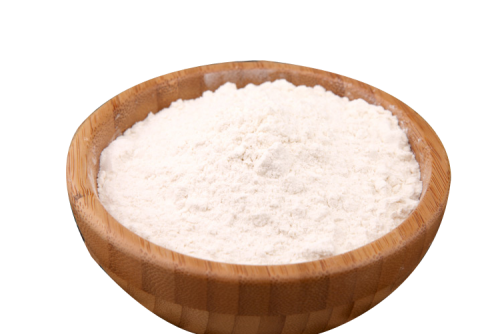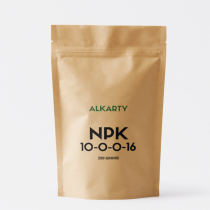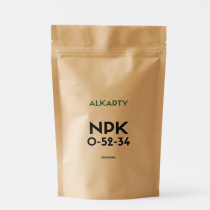off
Calcium nitrate is a water-soluble fertilizer that contains both calcium and nitrogen, two essential nutrients for plant growth. Here are some ways in which calcium nitrate can be used in plants: Nutrient Supply: Calcium: Calcium is a vital element for cell wall structure and stability. It plays a crucial role in the development of young plant tissues and helps in the prevention of disorders like blossom end rot in tomatoes and peppers. Nitrogen: Nitrogen is a key component of amino acids, proteins, and chlorophyll. It is essential for plant growth, leaf development, and overall plant vigor. Foliar Spray: Calcium nitrate can be dissolved in water and applied as a foliar spray. Foliar feeding allows plants to absorb nutrients directly through their leaves, bypassing the root system. This is particularly useful in situations where soil conditions may limit nutrient uptake. Preventing Calcium Deficiency: Calcium deficiency can lead to various issues such as poor fruit development, weakened cell walls, and increased susceptibility to diseases. Adding calcium nitrate to the soil or through foliar sprays helps prevent and correct calcium deficiencies. Hydroponic and Soilless Systems: Calcium nitrate is commonly used in hydroponic and soilless growing systems where nutrients are delivered directly to plant roots through nutrient solutions. It helps ensure a balanced nutrient supply for optimal plant growth. Seed Soaking: Treating seeds with a calcium nitrate solution before planting can enhance germination and early seedling development. pH Adjustment: Calcium nitrate can be used to adjust the pH of the growing medium. It has a neutral pH, and the calcium component can help counteract acidic conditions. Compatibility with Other Fertilizers: Calcium nitrate is often used in combination with other fertilizers to create custom nutrient mixes tailored to specific crop needs. Tomato and Pepper Production: These crops, in particular, are prone to calcium-related disorders. Adding calcium nitrate can help prevent blossom end rot and improve the quality of fruits. Drip Irrigation: In agriculture, calcium nitrate is sometimes injected into irrigation systems, especially in areas with water that is low in calcium. This ensures a consistent supply of calcium to the plants. When using any fertilizer, including calcium nitrate, it's important to follow recommended application rates to avoid over-fertilization, which can be harmful to plants. Additionally, local soil conditions, crop requirements, and specific guidelines should be considered for optimal results.



